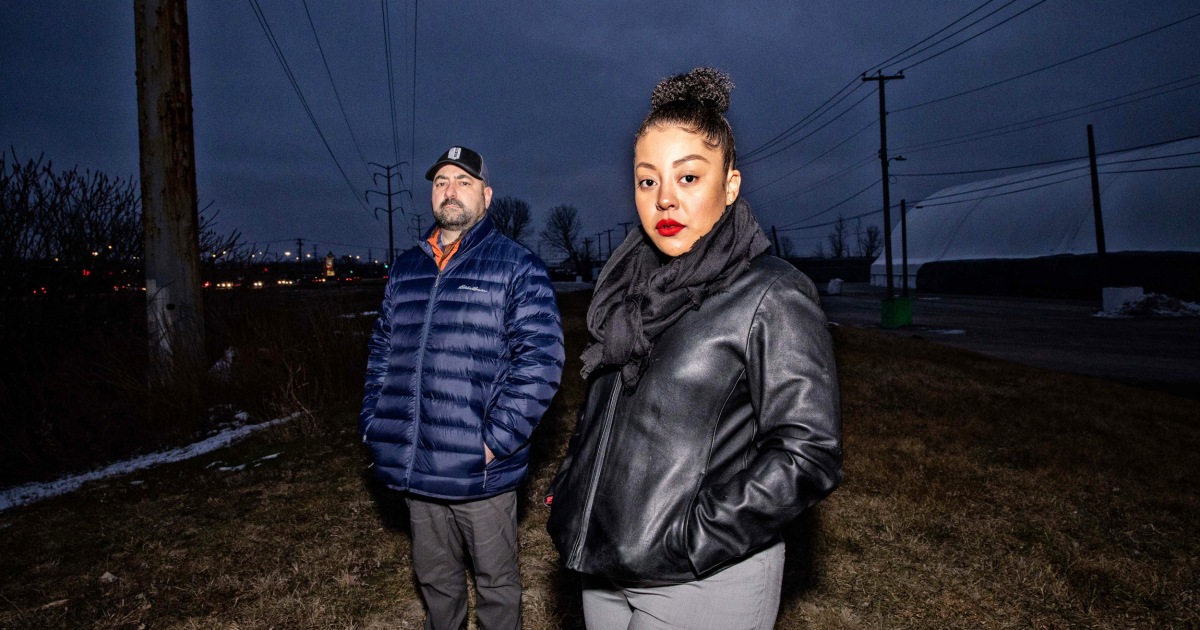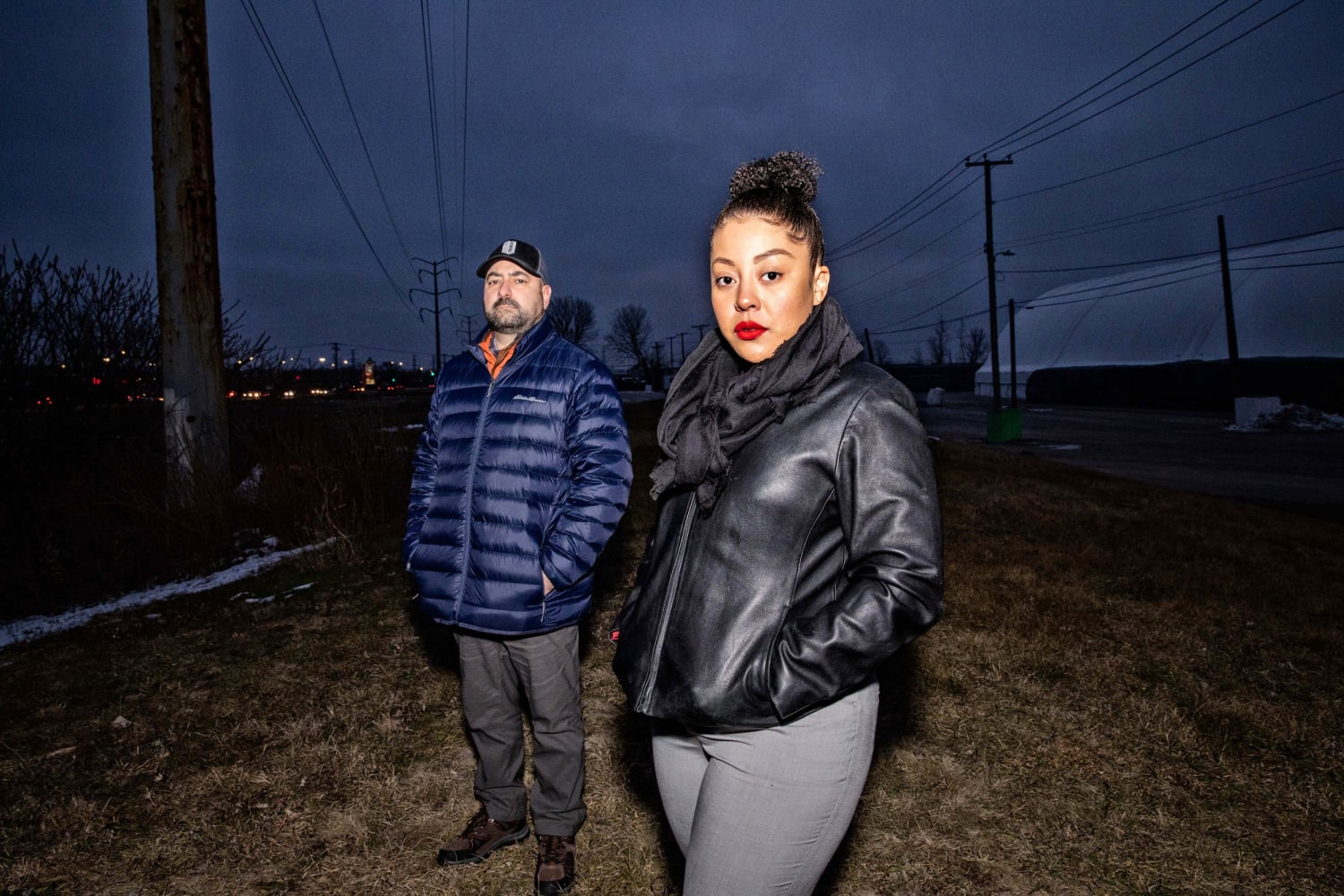
CHICAGO — For more than a century, industries have shaped the banks of the Calumet River on Chicago’s Southeast Side, creating a gritty economic corridor of trucking and cement companies, manufacturing plants and scores of salvage yards that spew metallic dust from scrap piles.
Each breath near the packed lines of factories feels heavy.
Yet, the prevailing view had been how those employers create well-paying, blue-collar jobs, and jobs are good for this largely Latino enclave, said Richard Martinez, a pastor at Nehemiah Family Fellowship Church and third-generation Southeast Sider, whose family worked for the factories.
But now, Martinez and a coalition of residents are pushing back: A proposal to open a scrap metal plant along the Calumet has sparked protests and a legal battle with the city, as well as reignited criticism that access to a cleaner environment for vulnerable communities of color is being sacrificed in favor of industry. The federal government on Monday said it was opening an environmental justice investigation into the state’s approval last June of a permit for the project.
The stakes remain especially high, community activists say, after the Chicago area last summer experienced its longest streak of high-pollution days in more than a decade, coming amid the coronavirus pandemic that has underscored persistent racial health and economic disparities nationwide. The mostly Latino residents on the Southeast Side of Chicago suffer from a disproportionate share of health problems compared to other areas of the city.
“I don’t consider myself an environmentalist,” Martinez, 48, said. “But as a pastor and a father, whatever we allow in our community has to be a blessing to the land and to our health and to future generations.”
Peggy Salazar, a resident for nearly 70 years, who is the director of the local nonprofit Southeast Environmental Task Force, said the community has had enough with factories dumping in their neighborhood.
“They’re thinking, ‘This place is already contaminated, so what’s a little more?’” she said. “But we’re not going to accept it anymore like we did for so long. We are going to fight for the transformation of our community.”
Recycling firm moving in
Martinez is a plaintiff in a federal lawsuit opposing a permit application filed by Reserve Management Group, a metals and electronics recycling firm seeking to operate a new facility, Southside Recycling, that can transform up to 1 million tons of unwanted metal products annually.
The Chicago Department of Public Health, however, must approve a key operating permit, giving the public until Friday to comment. The health department in September granted an air pollution control permit for the site, but drew criticism from Southeast Side residents who felt blindsided by the approval, citing how the area is already overburdened with environmental toxicity.
Reserve Management Group acquired control of another scrap metal plant, General Iron, on Chicago’s North Side in the fall of 2019. Previously, General Iron was a family-owned business that launched in the early 1900s, shredding and recycling discarded automobiles, appliances and other materials.
But in recent years, the North Side site was the subject of several dozen complaints about air pollution, strong odors, noise and smoke, and even explosions, prompting citations and protests over health concerns and spurring residents’ demands that city officials shut down the facility.
Instead, Reserve Management Group agreed to a city-approved “exit plan” that involved vacating General Iron’s longtime home in the North Side’s Lincoln Park, a majority white neighborhood and one of the most affluent in Chicago, by the end of 2020, and reopening operations to its existing site on the Southeast Side. It is unclear if any other site was considered.
Addressing the controversy, Reserve Management Group CEO Steve Joseph wrote in a letter to the editor in the Chicago Sun-Times in November that he welcomed the chance to be held accountable during the permitting process and the project has “created hundreds of construction jobs and will keep more than 100 well-paying jobs in the city.”
“The racial, ethnic and income demographics of surrounding neighborhoods played no role in our considerations,” he added.
But such an explanation doesn’t always satisfy members of the city’s Black and brown communities, who tend to live in more polluted areas and don’t have the same power and influence to advocate for their own interests, environmental advocates and legal experts say.
“Areas that are largely Latino, such as on the Southeast Side, have been a dumping ground where all the polluting industries have gone for many years,” said Jennifer Cassell, an attorney with Earthjustice, a nonprofit environmental law organization.
In the past decade, she added, these areas have been fighting petroleum coke pollution, landfill sites, proposed coal mines and high concentrations of manganese, a neurotoxin linked to neurodegenerative diseases like Parkinson’s.
The history with environmental racism goes even deeper, said Kiana Courtney, an attorney with the nonprofit Environmental Law and Policy Center, which has filed public comments against Reserve Management Group’s permit application.
“Much of Chicago’s zoning for industrial corridors and factory receiving areas overlap, almost identically, with areas that were redlined,” Courtney said, referring to how federal agencies in the 1930s allowed for discriminatory lending practices that kept Black homebuyers out of certain areas.
Source: | This article originally belongs to Nbcnews.com










